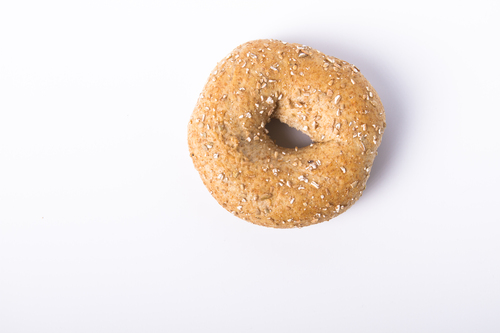Learn about what you can eat before competition.
The pre-event meal is an important meal for best performance. But it can be challenging to get it right when your competition takes you on the road or if you are competing in a series of events. The meal following competition is important too.
The Pre-Event Meal
It’s important that meals eaten before competition are high in carbohydrate, low in fat and consumed 2–3 hours before the event. Fat takes longer to digest and may lead to discomfort if eaten close to strenuous activity. Consume fluid with the meal. Avoid gas forming or unfamiliar foods and alcohol.
Fibre may also need to be limited since it takes longer to digest or moves too quickly through the digestive tract if you are nervous before an event. Both situations may lead to discomfort during an event.
Examples of pre-event meals:
- Cereal, milk, fruit, toast
- Yogurt, bagel, fruit
- Soup, sandwich with lean meat, milk
- Small portion of pasta with tomato sauce
- toast, egg, milk
Choose smaller amounts of similar foods if there is less than 2–3 hours before the event.
Maintaining Your Training Diet Away From Home
- If travel time is longer than a few hours, pack snacks (sandwiches, bagels, milk, chocolate milk, yogurt, juice, fruit, cereal bars, cheese, crackers, peanut butter) rather than having to purchase whatever is available at gas stops. Carry a full bottle of water.
- If meals are consumed en route, plan stops in advance to ensure that good food choices are made (choose a restaurant that serves pasta or thick crust pizza instead of fries & burgers). Do not consume alcohol prior to competing.
- If travelling by plane, drink plenty of water during the flight. Even a few hours in the air can cause significant dehydration. Take your own water bottle and pack your own snacks.
- Eat a good dinner the night before competition begins, or a substantial lunch if the first event is in the evening. A meal high in carbohydrates is ideal for energy (pasta’s great). Consume lots of fluids.
- At restaurants, to ensure a balanced, high carbohydrate, lower fat meal, order extra rolls, rice, pasta, or baked potato (instead of fries), milk or juice, salad dressing on the side or toast lightly buttered. Go easy on the sauces or mayonnaise when ordering sandwiches or burgers. Avoid battered, deep-fried meat and fish.
- If competition or games take place throughout the day, athletes may not have the time or inclination to eat normal “meals.” In this case, schedule snacks around events to maintain energy levels. Find out in advance what the canteen will sell or if stores and restaurants nearby will be open. If available food is not satisfactory, you may wish to take your own. Non-perishable items like juice, fruit, crackers, bagels, cheese, and even a jar of peanut butter and a loaf of bread, help ensure the energy consumed also supplies the nutrients so important to good performance. Pack a cooler with milk, yogurt, and juice.
- Keep a large jug of water or sport drink with cups on hand for drinks during and between events. Consume water regularly during the day in addition to soups, milk, juice and other fluids.
- Eat supper after a full day of competition, even if tired. This helps ensure the body is well-fuelled for the next day of competition. Include carbohydrate foods and fluids.
- Athletes too nervous or upset to eat much during competition should know what they are able to tolerate (even if it’s just soup, milk, sport drinks or juice). Be sure these choices are available. Meal replacement beverages (e.g. Boost™, Ensure™) may be useful.
